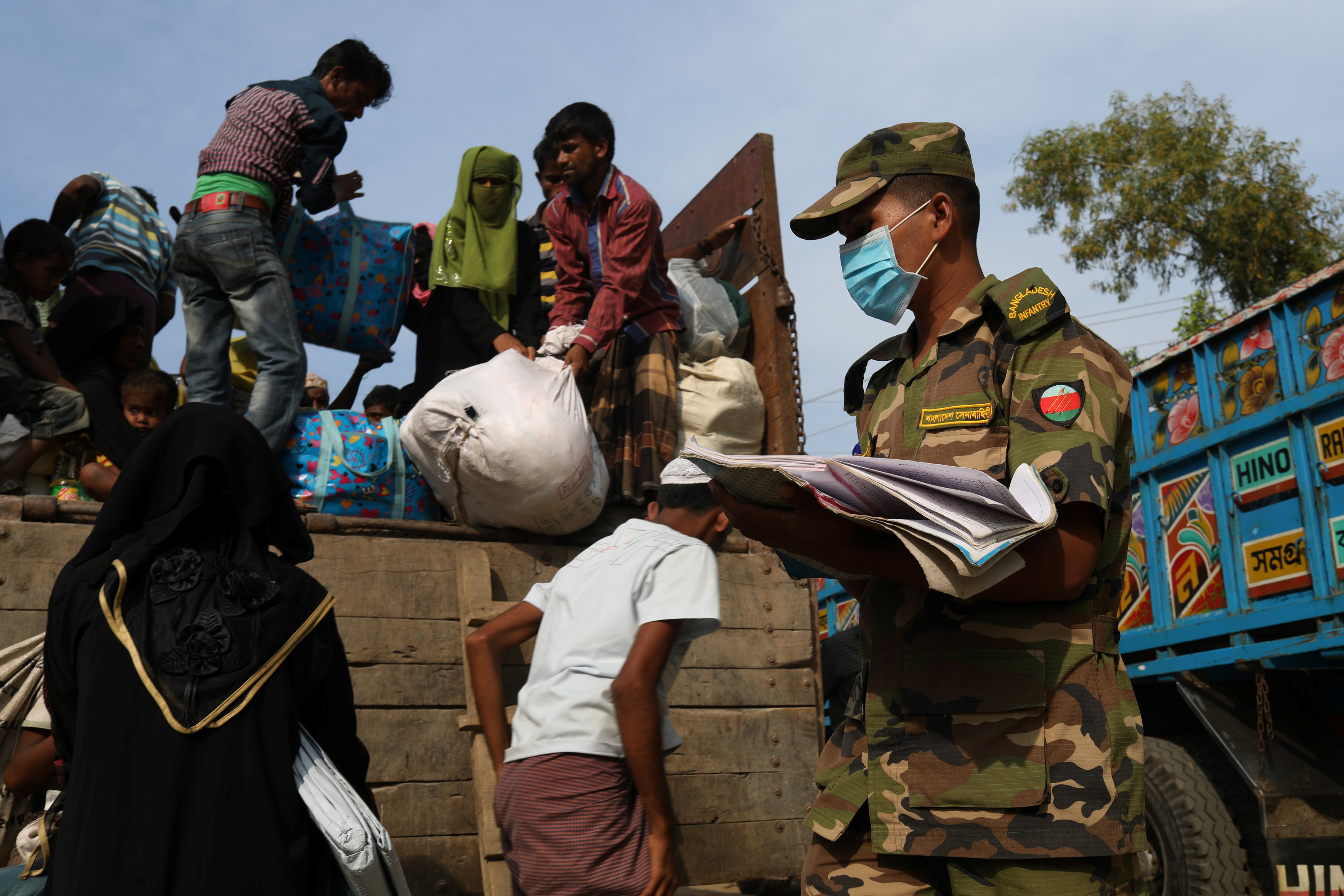
By Yimou Lee
YANGON (Reuters) – Human rights groups called on Friday for international agencies to be allowed to monitor the planned repatriation of hundreds of thousands Rohingya Muslims from Bangladesh to the homes they have fled from in Myanmar over the past three months.
The two governments signed a pact on Thursday settling terms for a repatriation process. They aim to start the return of Rohingya in two months in order to reduce pressure in the refugee camps that have mushroomed in the Cox’s Bazar region of Bangladesh.
But rights groups have expressed doubts about Myanmar, also known as Burma, following through on the agreement, and some have called for independent observers.
“The idea that Burma will now welcome them back to their smoldering villages with open arms is laughable,” said Bill Frelick, refugee rights director at Human Rights Watch.
“Instead of signing on to a public relations stunt, the international community should make it clear that there can be no returns without international monitors to ensure security, an end to the idea of putting returnees in camps, the return of land and the rebuilding of destroyed homes and villages.”
More than 600,000 Rohingya sought sanctuary in Bangladesh after the military in predominantly Buddhist Myanmar launched a brutal counter insurgency across northern parts of Rakhine State following attacks by Rohingya militants on an army base and police posts on Aug. 25.
The United Nations and United States have described the military’s actions as ethnic cleansing. Rights groups have accused the security forces of atrocities, including mass rape, arson and killings.
While Myanmar’s civilian leader, Aung San Suu Kyi, has said repatriation of the largely stateless Muslim minority would be based on residency and would be “safe and voluntary”, there were concerns that the country’s autonomous military could prove obstructive.
The memorandum of understanding signed by Myanmar and Bangladesh on Thursday said a joint working group would be set up within three weeks to prepare for the return of the refugees.
But it gave scant details about the criteria of return and of what role, if any, the United Nations refugee agency, UNHCR, could play.
The agency believed conditions in northern Rakhine “are not in place to enable safe and sustainable returns” of Rohingya and some refugees were still fleeing Myanmar, spokesman Adrian Edwards told reporters.
“It is important that international standards apply, and we are ready to help,” he said, adding that the UNHCR had still not seen the repatriation agreement signed by the two countries.
“It’s important that people don’t end up being sent back to confinement and ghettos.”
Human rights monitors said other important points not addressed in the statements released separately by the two governments included the protection of Rohingya against further violence, a path to resolving their legal status and whether they would be allowed to return to their old homes.
Suu Kyi’s spokesman was not immediately available for comment on Friday, and had declined to comment on these concerns when contacted by Reuters late on Thursday.
Charmain Mohamed, Amnesty International’s director for refugee and migrant rights, said the United Nations and the international community “have been completely sidelined” and the talk of return was “premature” while the flow of Rohingya refugees to Bangladesh continued.
China welcomed the agreement, saying it “feels gratified at the current positive progress that has been achieved”, Chinese foreign ministry spokesman Geng Shuang told reporters, adding that situation in Rakhine “has obviously been alleviated”.
Humanitarian workers say, however, that hundreds of Rohingya are arriving in Bangladesh daily, driven out of Myanmar predominantly by chaos, starvation and fear.
‘CRIMES AGAINST HUMANITY’
While the violence has mostly ceased, Rohingya say they have largely lost access to sources of livelihood such as their farms, fisheries and markets.
“We will go back if they don’t harass us and if we can live life like the Buddhists and other ethnic groups. Our educated children should get government jobs like the others,” said Sayer Hussein, 55, who arrived in Bangladesh two months ago.
Thousands of Rohingya, most of them old people, women and children, are stranded on beaches near the border, waiting for a boat to take them to Bangladesh.
Some independent estimates suggest there could still be a few hundred thousand Rohingya in Rakhine State.
Thirty-six groups, including the International Commission of Jurists and Amnesty International, called for a U.N. Human Rights Council special session on the situation in Myanmar.
Myanmar should “immediately cease all human rights violations, including crimes against humanity”, the groups said in an open letter to the U.N. council.
(Additional reporting by Stephanie Ulmer-Nebehay, Masako Iijima, Natalie Thomas and Michael Martina; Editing by Simon Cameron-Moore, Robert Birsel)







